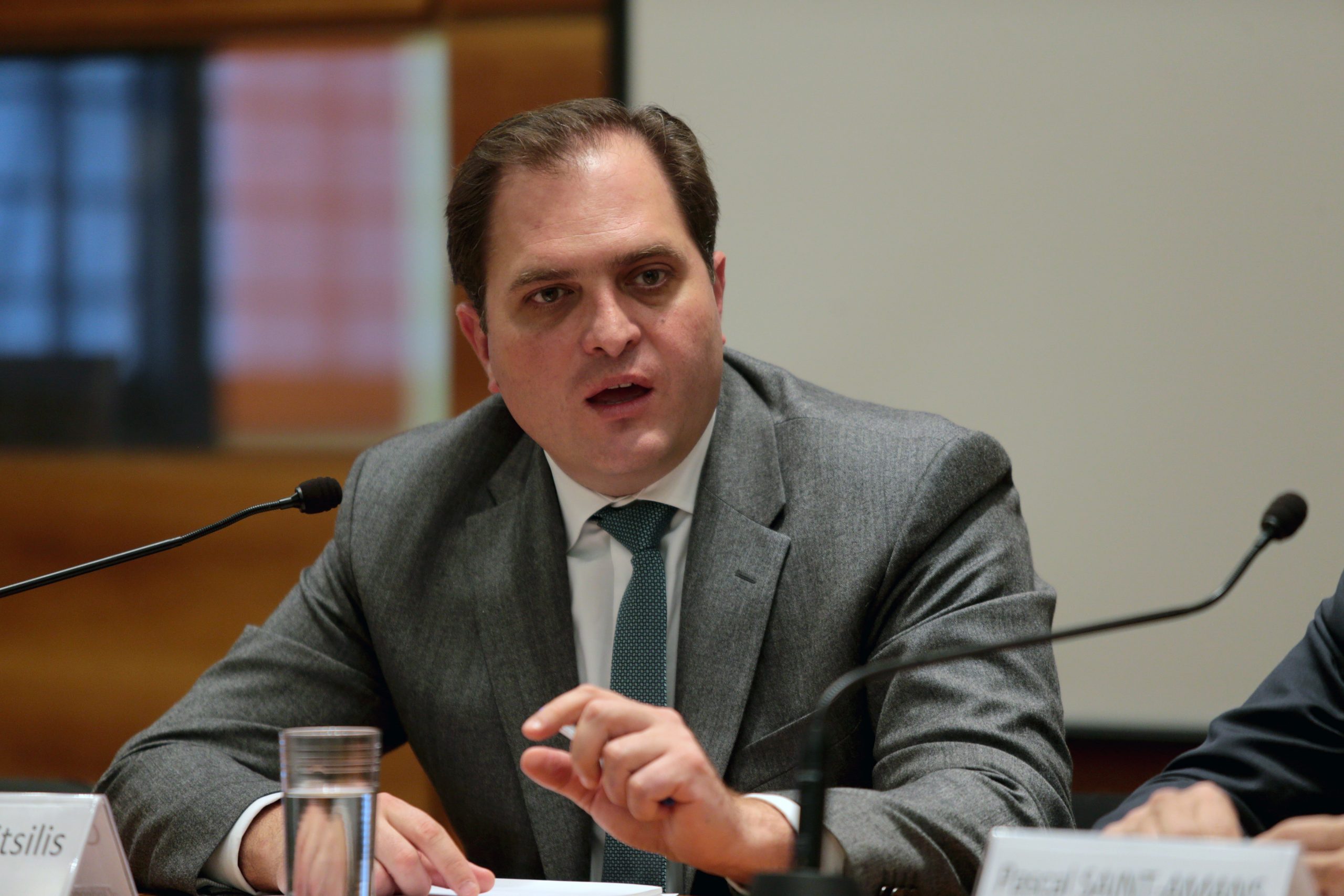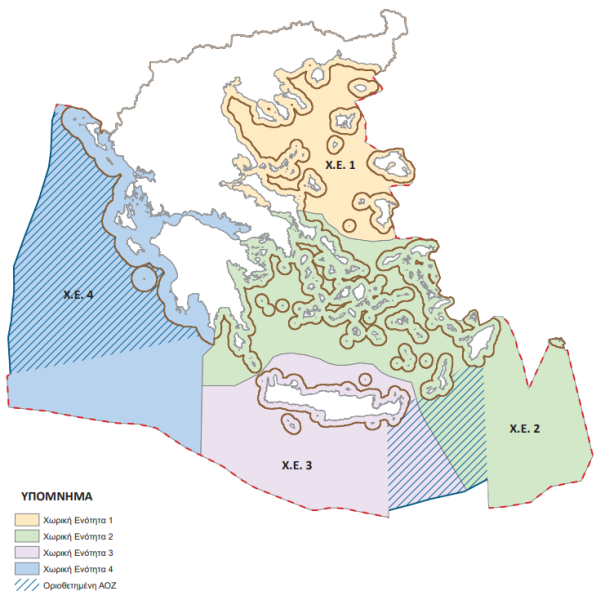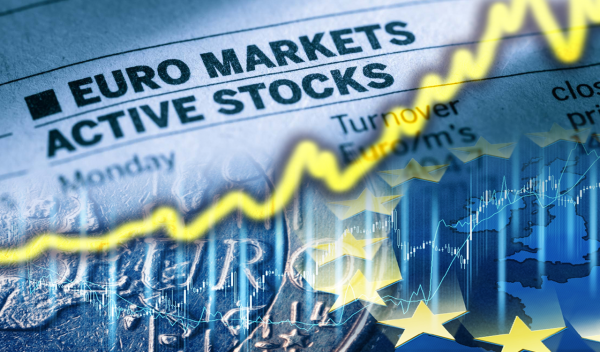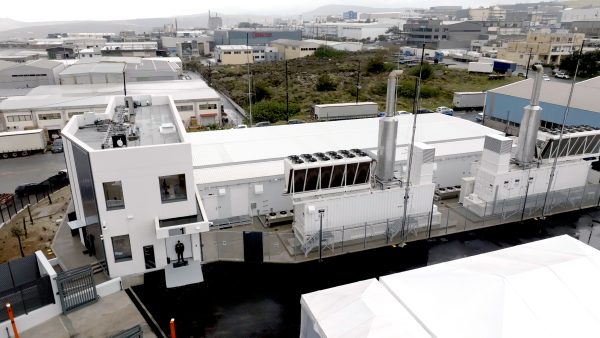
Exceeding the goals for public revenues in the first two months of 2023 as well, “sees” the head of the Independent Public Revenue Authority (AADE), Giorgos Pitsilis. According to Mr. Pitsilis, after the very difficult 2020 and after the recovery of 2021, in 2022 the Greek economy did even better and in terms of public revenues there was a very large increase, “by 6 billion euros or 12% more than what was targeted.”
In fact, he estimated that an amount of around half a billion has also come from tax compliance actions. In his online presentation at the 6th Prodexpo North, in Thessaloniki, Mr. Pitsilis also reminded that the transactions registered in MyDATA since October 2020 have now exceeded 1 trillion euros in value.
Scopes Ratings: Greek economy to grow by 1.3% in 2023; 2% in 2024
We want to invest in Thessaloniki, the area has great potential
Regarding Thessaloniki, Mr. Pitsilis pointed out that AADE invested a lot in the city and changed its working model. He reminded that two control centers have already been created in Thessaloniki – “where 10 tax authorities had control” – in areas that are expected to see growth in the coming years, specifically near the Venizelos Metro station and in the area of Sfageia. He added that AADE is still looking for infrastructure, because it wants to continue the centralization of its services, while he made special mention of the human resources of Thessaloniki, which the Authority wants to utilize throughout Greece. “We want to invest in Thessaloniki, we believe that the region has a lot of potential” he emphasized and added that in order to achieve all the goals “we need to be optimistic and unsatisfied”.
In the right direction, but “holding on to a creaking branch”
With the phrase “we need to be lucky, lest something happens to our external environment”, Professor Nikos Vettas, general director of the Foundation for Economic and Industrial Research (IOBE), answered a question about what needs to happen to continue the positive course of the Greek economy.
He expressed his belief that at the moment the Greek economy is “held up” – and will be held up – by the European institutions and the E.U. supports it through the Recovery and Reconstruction Fund, however, he emphasized: “if we dig too deep, this fund and other such organizations are in the air, if the EU itself does not proceed to a close fiscal union. (…) We are holding on to a branch and if it starts to crack, issues will arise for us as well. The same is true of the global financing environment.”
He added that if we look back to 1981, when Greece joined the EEC, we will find that then the country was clearly richer – in terms of GDP per capita – than Spain, Portugal or Ireland and various others, but in 40 years intervening since then ground has been lost “little by little every year”. As he said, the average growth of the Greek economy during the 40 years was below 1% “and since the request for the next 20 years is to become 2.5%-3%, it must be understood that this is not possible with the current production process and the current state. We are going in the right direction, we have made painful improvements (…), but there is a distance from what needs to be done”.
He added that Greece needs to play by the rules of a small open economy, which means that it will have to see “where it fits into the international division of labor. Instead, however, our natural tendency is to artificially close our borders, in order to circulate money among ourselves,” he argued.
Thessaloniki, Macedonia and the critical issue of human resources
To a question about the perspective of the wider region of Thessaloniki and Macedonia, he answered that it has recently taken the lead in two directions, on the one hand in the operation of medium and high-tech enterprises, with an export character, and on the other hand in attracting service export companies. However, to maintain the positive trend, emphasis should be placed on the following areas: the quality and quantity of human resources and the connection of the education system with production, the cost and quality of housing and the attraction of workers from abroad as well .
“If you talk to these businessmen, a potential “brake” (in their activity) is human resources,” noted Mr. Vettas and added that, beyond the interconnection of the educational process and production, without opening up the country and bringing people and from abroad – either as workers or as students, as “it is unthinkable for an educational system to not have 20% foreigners’ – you can’t use all the potential.
This, he clarified, needs to be done with a plan, while he added that demographics will also affect the matter in various ways, as in the future “we will be 10%-15% less, while the average age is also changing”. Many people will be over 80 in the future, which means that care centres, smaller properties and interventions in the city itself will be needed so that there is free space that combines with public transport, he concluded.
Latest News

Greek €200M 10Y Bond to be Issued on April 16
The 3.875% fixed-interest-rate bond matures on March 12, 2029, and will be issued in dematerialized form. According to PDMA, the goal of the re-issuance is to meet investor demand and to enhance liquidity in the secondary bond market.

German Ambassador to Greece Talks Ukraine, Rise of Far Right & Tariffs at Delphi Economic Forum X
Commenting on the political developments in his country, the German Ambassador stressed that it was clear the rapid formation of a new government was imperative, as the expectations across Europe showed.

Athens to Return Confiscated License Plates Ahead of Easter Holiday
Cases involving court orders will also be excluded from this measure.

Servicers: How More Properties Could Enter the Greek Market
Buying or renting a home is out of reach for many in Greece. Servicers propose faster processes and incentives to boost property supply and ease the housing crisis.

Greek Easter 2025: Price Hikes on Lamb, Eggs & Sweets
According to the Greek Consumers’ Institute, hosting an Easter dinner for eight now costs approximately €361.95 — an increase of €11 compared to 2024.

FM Gerapetritis Calls for Unified EU Response to Global Crises at EU Council
"Europe is navigating through unprecedented crises — wars, humanitarian disasters, climate emergencies," he stated.

Holy Week Store Hours in Greece
Retail stores across Greece are now operating on extended holiday hours for Holy Week, following their Sunday opening on April 13. The move aims to accommodate consumers ahead of Easter, but merchants remain cautious amid sluggish market activity.

Green Getaway Ideas for Easter 2025 in Greece
Celebrate Easter 2025 in Greece the sustainable way with eco-farms, car-free islands, and family-friendly getaways rooted in nature and tradition.

Civil Protection Minister Details Summer Firefighting Plans at Delphi Forum
At the 10th Delphi Economic Forum, Minister of Climate Crisis and Civil Protection Yiannis Kefalogiannis discussed Greece's plans for the upcoming fire season.

How Shops and Markets Will Operate During Easter Holy Week
The Easter holiday schedule has been in effect since April 10, with retail stores open Palm Sunday, and most supermarkets also operating to meet consumer demand for Easter shopping









































 Αριθμός Πιστοποίησης
Αριθμός Πιστοποίησης